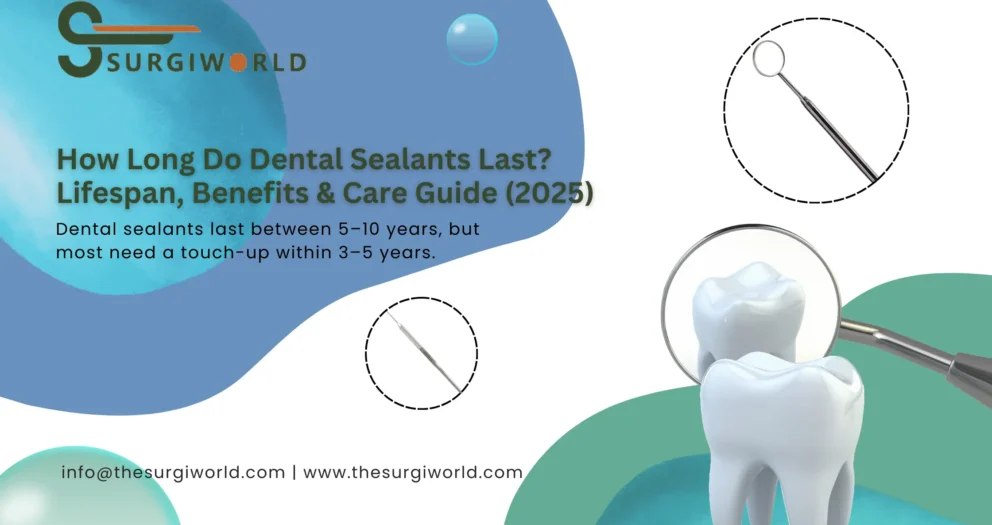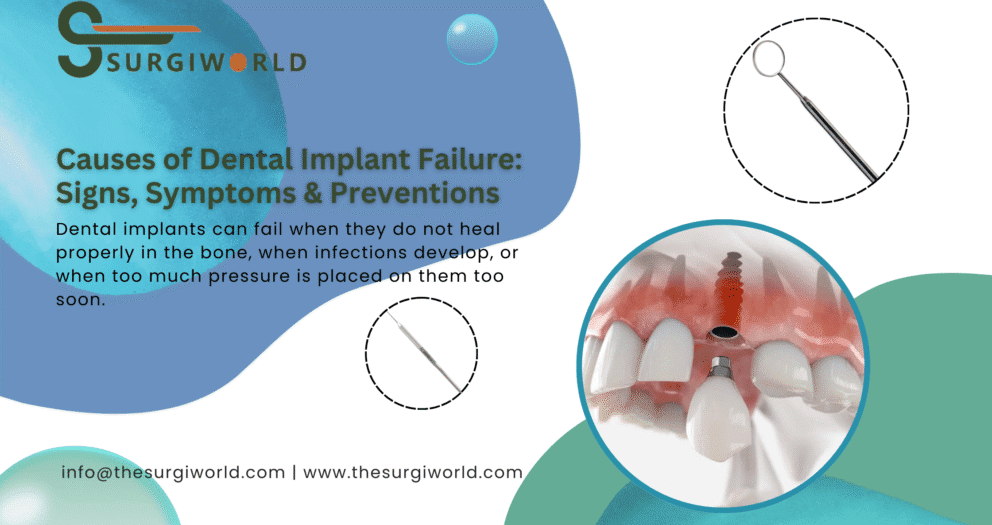Table of Contents
Yes, in most cases, you can safely get an MRI with a dental implant. Modern dental implants are made from biocompatible metals like titanium or zirconia, which do not interfere with MRI scans.
In this article, we’ll explain what MRI is, how it works with metal dental implants, and what you should tell your doctor or technician before the scan.
You’ll also learn why some people are told to avoid MRIs right after getting implants, what materials are safest, and how to stay safe if you need an MRI later. We also cover helpful tips, safety checks, and common questions like: Will a dental implant affect my MRI results? or Is it safe if I have metal in my teeth? Keep reading to get clear answers, expert advice, and safe product recommendations for dental care.
Understanding Dental Implants and MRI
Dental implants are small artificial roots, usually made from titanium or zirconia, that replace missing teeth. They’re placed into the jawbone and become part of your body over time — a process called osseointegration. These implants are strong, safe, and designed to stay in your mouth for years.
On the other hand, an MRI (Magnetic Resonance Imaging) is a scan that uses strong magnets and radio waves to take detailed pictures of your body. Since it uses magnetism, many people wonder: “Will the metal in my dental implant affect the scan?”
The good news is: most modern dental implants are MRI-safe. They’re made with non-magnetic or low-magnetic materials, which means they usually don’t cause problems during the scan. But it’s still important to tell your doctor or technician about any implants before your MRI.
This section sets the stage for understanding how dental materials interact with MRI and helps answer common patient concerns around metal and imaging safety.
Checkout: What TheSurgiWorld is offering you Dentists
Can I Get an MRI if I Have Dental Implants?
Yes, you can usually get an MRI even if you have dental implants. Today’s implants are made with materials like titanium or zirconia, which are non-ferromagnetic — meaning they won’t react strongly to the MRI’s magnetic field.
Most people with implants go through MRI scans without any problems. However, there may be minor image distortion near the implant site, but this usually doesn’t affect results unless the scan is focused on the head or jaw. Always tell your doctor or radiologist before the scan, so they can check the type of implant you have and adjust the settings if needed. Safety is not usually the issue — clarity of the image is what professionals want to be sure of.
Read : Does a Pedicure Remove Calluses?
Dental Implants and MRI Procedures
During an MRI, the scanner uses strong magnets to create images. If your implant is made of safe materials — and most modern ones are — it won’t heat up, move, or interfere with your health.
However, if your MRI is for the head, jaw, or sinuses, the implant might cause small shadows or blurry spots in the images. Technicians can usually adjust angles or use different sequences to reduce this. Communication is key: share your dental history with your healthcare provider so they can plan properly.
Do My Dental Implants Affect MRI?
In most cases, they don’t affect your MRI in a serious way. But here’s what can happen:
- No effect for MRIs of the body (knee, spine, abdomen, etc.)
- Minor distortion near the implant if the scan is close to your mouth
- No safety risk with modern, approved implants
If you received your implant many years ago, check with your dentist or oral surgeon to confirm the materials used. Most likely, you’re fine — but it’s better to be sure.
What is an MRI?
MRI stands for Magnetic Resonance Imaging. It’s a medical scan that helps doctors see inside your body — like your brain, muscles, joints, or organs — without surgery or X-rays.
An MRI uses strong magnets and radio waves to create very detailed pictures. You lie down on a bed, which slides into a big, round machine. The scan is safe, painless, and doesn’t involve radiation.
Because it uses magnets, doctors must check if you have any metal inside your body, like dental implants, pacemakers, or metal screws. This helps avoid any small risks and makes sure the images are clear. So, an MRI helps doctors diagnose problems and plan treatments — but knowing what’s inside your body, like dental implants, helps them do it safely and accurately.
What to know the Dentists Tools Prices In Canada & USA We are offering?
Metals, Dental Implants, and MRI Scans
Most dental implants are made of titanium, a special metal known for being biocompatible — meaning it works well with your body. The good news? Titanium does not react to MRI’s strong magnets in most cases.
MRI machines use powerful magnetic fields. So, if any metal inside your body is magnetic, it can move, heat up, or distort the images. But titanium is non-magnetic, so it usually stays safe and doesn’t cause any problems during the scan.
However, if your implant has older metal materials, or metal crowns or bridges nearby, it’s important to tell your doctor. Some materials may slightly blur the image near your mouth but won’t hurt you.Quick Tip: Always inform the radiologist about any metal in your body before an MRI. This helps them plan the scan safely and avoid any image problems.
Also read: why no dairy after dental implant
Also read: how to relieve pain from dental implant
Why It’s Usually Safe to Get an MRI With Dental Implants
Most people with dental implants can safely get an MRI scan. That’s because modern implants are made from titanium, a non-magnetic and biocompatible metal. It doesn’t react to the strong magnets used in MRI machines.
MRI safety has improved over the years. Doctors and dentists now understand which materials are safe. Titanium implants don’t move, don’t heat up, and don’t set off alarms during scans. That means the scan is both safe and painless for most patients.
In rare cases, if you have older metal dental work or metal crowns, there might be small issues with the image quality near your mouth — but even that is manageable. Just make sure to tell your radiologist about all your dental work before the scan.Bottom line: If your implants are made of titanium (like most today), you can usually get an MRI without any problems.
Can Dental Fillings or Crowns Interfere With MRI Too?
Yes, dental fillings and crowns can affect an MRI — but only in very rare cases, and not in a harmful way. Most modern fillings and crowns are made from non-magnetic materials like ceramic, composite resin, or gold. These materials don’t react to MRI machines.
However, some older metal fillings or crowns, especially those made with amalgam (a mix of metals), might cause tiny distortions in the images near your mouth. This doesn’t hurt you, but it can make it harder for the doctor to see certain areas clearly.The good news is: they don’t stop the MRI from working, and they won’t cause pain or damage during the scan. Just let your MRI technician know you have dental work so they can adjust the settings if needed.
Checkout Our Hygiene Tools Prices In Canada & USA.
Some Recommendations for Dental Implant MRI Safety
If you have dental implants and need an MRI scan, don’t worry — it’s usually safe. But to be extra careful, follow these simple tips:
- Tell your doctor and MRI technician that you have dental implants, crowns, or any other metal in your mouth.
- Know your implant material. Most are made from titanium, which is MRI-safe, but it’s still good to confirm.
- Bring any paperwork or implant card you received when the implant was placed — it often lists the material and brand.
- Avoid last-minute surprises by discussing everything with your healthcare provider before your scan.
- Stay still during the scan to prevent image distortion around your mouth area.
These steps help your medical team keep you safe, and they make sure the MRI images stay clear and accurate.
Consult Your Healthcare Providers If You Need an MRI and Have a Tooth Implant
Before getting an MRI scan, it’s always smart to talk to your dentist and doctor if you have a dental implant. They know the exact type of implant you have and can tell the radiologist whether it’s safe for MRI.
Your dentist can confirm the material (usually titanium or zirconia), while your doctor or radiologist will check if it might affect the scan in any way. This helps avoid confusion, delays, or unclear scan images.Even though most implants are MRI-safe, it’s better to double-check than take any risks. Always keep your dental records handy — they can make this process easier and faster.
Have a Look At: Other Interesting Facts & Knowledge about Dentistry Field
Dental Implants and MRI
Should I Delay My Implant If I Need Frequent MRIs?
If you regularly need MRI scans, tell your dentist before getting an implant. Most dental implants are MRI-safe, but your dentist may choose a material (like zirconia) that causes no interference at all.
Will a Tooth Implant Affect MRI?
In most cases, no. Titanium and zirconia implants are biocompatible and non-magnetic, so they don’t affect MRI images or safety. However, older implants or certain alloys might create mild distortion in nearby scan areas.
Can I Get MRI If I Have Metal on My Teeth?
Yes, you can. Dental metals like titanium and stainless steel are usually MRI-compatible. Just let your radiologist know in advance so they can adjust the scan if needed.
Can an MRI Be Safely Done After Receiving a Dental Implant?
Absolutely. Once the implant is placed and healed, it’s safe to undergo an MRI. The implant won’t heat up or move, but communicating with your healthcare team is always the best step.
Does the Type of Implant Material Matter for MRI?
Yes. Implants made from titanium are most common and MRI-safe. Zirconia implants are fully ceramic and often preferred for people concerned about metal in scans.
Can MRI Distort My Scan Results If I Have a Crown or Bridge?
Sometimes. Metal crowns or older restorations may cause small artifacts in the image, but this is rare and usually doesn’t affect diagnosis.







Write a comment
You must be logged in to post a comment.